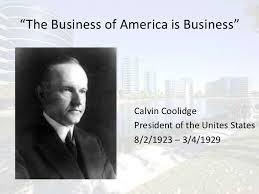 At a recent social event, most guests sanctimoniously agreed it was somehow disgusting that anyone should make a profit providing health care. One woman said she had no problem with a store profiting from selling sweaters; but no one should profit from people’s hardship or suffering. I frankly thought that bizarre. Isn’t the relief of suffering a greater boon, more worthy of compensation, and incentivizing, than merely supplying sweaters? I sure as heck didn’t begrudge the profit of the dentist who cured my tooth ache; that’s what motivates people to go to dental school, invest in offices and equipment, hire staff, etc., to provide such service. Nor do I resent the profits of the pharmaceutical company producing the medicine that makes my wife’s life livable.
At a recent social event, most guests sanctimoniously agreed it was somehow disgusting that anyone should make a profit providing health care. One woman said she had no problem with a store profiting from selling sweaters; but no one should profit from people’s hardship or suffering. I frankly thought that bizarre. Isn’t the relief of suffering a greater boon, more worthy of compensation, and incentivizing, than merely supplying sweaters? I sure as heck didn’t begrudge the profit of the dentist who cured my tooth ache; that’s what motivates people to go to dental school, invest in offices and equipment, hire staff, etc., to provide such service. Nor do I resent the profits of the pharmaceutical company producing the medicine that makes my wife’s life livable.

Thus critics of capitalism talk as though the first side won the argument and businesses do exist solely for profit – in disregard of any other consideration – and hence are ipso facto a menace. For example, Naomi Klein, whose recent book I reviewed, seemingly thinks profit is the sole reason energy companies extract fossil fuels – the fact that society uses, needs, fossil fuels doesn’t enter into it. As if, remove the profits, and no extraction would occur.

People who bought his products valued them more than the money spent. That difference, or surplus value, created by Jobs, increased societal wealth. Had he never existed, all those people would have been worse off. His wealth would not have been somehow distributed among them; it would never have existed either. This is what the 99%-vs.-1% mentality misses.
Today it’s more true than ever that business is really all about customer value, with the internet leveling the competitive playing field, giving consumers far more choices and access to information. A business whose products aren’t great, that doesn’t satisfy customers, will not survive.
Anyhow, it’s too simplistic to say (legitimate) businesses are only concerned with profit. The real world isn’t like that. It’s certainly untrue to say they care only about shareholder returns. Shareholder ownership is merely notional; in reality a corporation owns itself, buying shares merely entitles one to certain rights, while management isn’t meaningfully beholden or accountable to shareholders, instead running the company for its own purposes. And while a firm’s profitability does benefit managers, mainly they care about profits because profits advance their other agendas (a la Steve Jobs).


At the end of the day, the most successful and profitable businesses are those that are best at creating customer value – which of course means societal value. Adam Smith wrote of the market’s “invisible hand” thusly benefiting society. I heard a radio commentator say Smith might have been right in his simpler time (1700s) but not in today’s world rife with inequality. Really? In Smith’s day, the great mass of humanity everywhere lived in squalid poverty – whereas in the last century, worldwide average real dollar incomes quintupled. That colossal fact is not negated by the inequality of the few with great wealth. They haven’t stopped billions of people from seeing a quantum leap in living standards in modern times. And that vast enrichment is nothing other than the cumulation of customer value created by businesses seeking to profit thereby – i.e., free market capitalism. A stunning vindication of Adam Smith and his invisible hand.

* To quote management guru Peter Drucker, “There is only one valid definition of a business purpose: to create a customer.”
